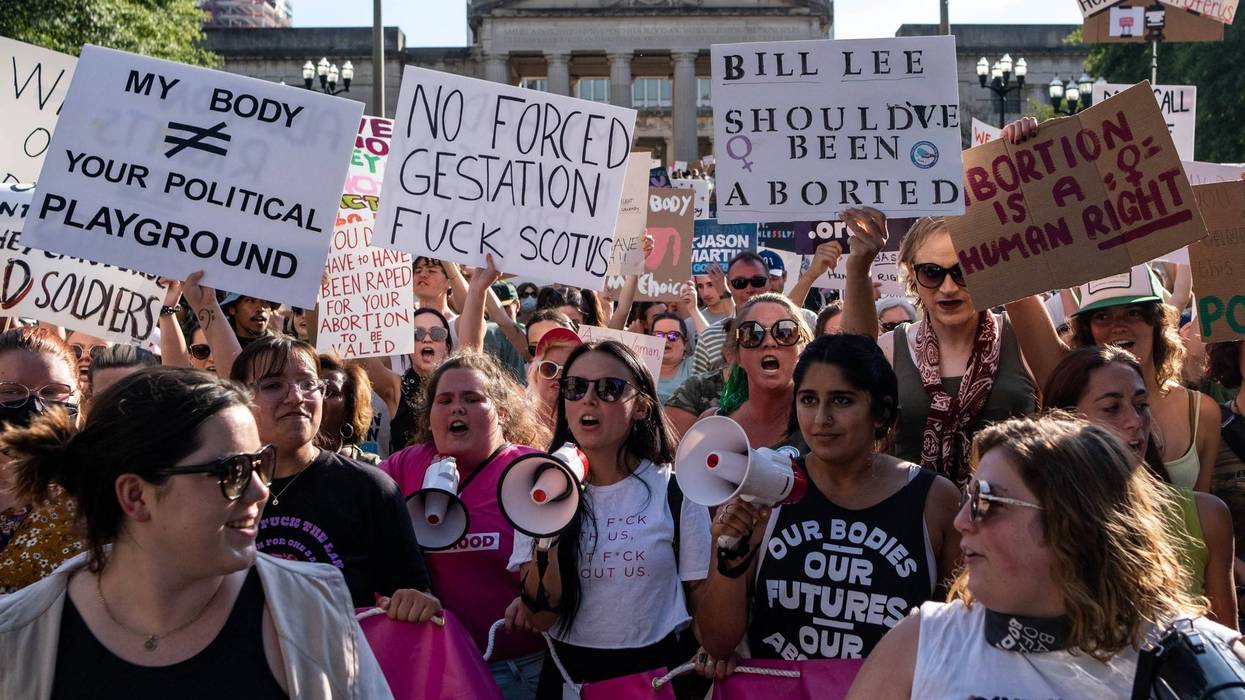October, 27 2020, 12:00am EDT

Working-Class, White Voters Meet Economic Hardship: Which Way Will They Swing in 2020?
WASHINGTON
The largest group of voters swinging from Obama in 2012 to Trump in 2016 were lower-income whites without college degrees. But recent economic hardship like housing insecurity, as documented in this new analysis by the Center for Economic and Policy Research (CEPR), has spiked among these voters.
The Rise in Material Hardship Among Working-Class Whites and How It Could Impact the 2020 Election, by Mariko Lewis, Yixia Cai, and Shawn Fremstad, concludes pandemic-induced housing and possibly other hardships not usually "experienced by lower-income whites without college degrees makes retaining all of these vote switchers more difficult for [Trump]."
The analysis is quick to document that housing insecurity among Black and Hispanic households is far more common than in white households especially as the pandemic caused a nationwide spike in unemployment.
From August to mid-September, Hispanic renters were almost twice as likely as white ones to be behind on rent, while Black renters were more than twice as likely as white ones to be behind on rent. Black homeowners were 2.5 times as likely as white ones to be behind on mortgage payments, and Hispanic homeowners were twice as likely to be behind on mortgage payments.
"White people in the United States have benefitted from structural and institutional racism for generations, but that was no protection for lower-income, less educated whites in this pandemic economy when it came to housing," said co-author Mariko Lewis.
Before 2020, the share of white people experiencing housing insecurity was relatively stable and there were not large differences between whites overall and lower-income whites without college degrees. However, the share of lower-income whites without college degrees reporting housing insecurity spiked in 2020.
From August to mid-September, about one-in-four lower-income, non-college degree white renters were unsure if they could pay the next month's rent. Among homeowners in this same group, housing insecurity increased by over 60 percent from 2019 to 2020. By contrast, it has remained relatively stable, or even declined, among white homeowners overall.
The Center for Economic and Policy Research (CEPR) was established in 1999 to promote democratic debate on the most important economic and social issues that affect people's lives. In order for citizens to effectively exercise their voices in a democracy, they should be informed about the problems and choices that they face. CEPR is committed to presenting issues in an accurate and understandable manner, so that the public is better prepared to choose among the various policy options.
(202) 293-5380LATEST NEWS
Trump Admits War Would Be Disastrous for Ordinary Iranians as He Weighs Military Assault
"The stakes are clear," said the National Iranian American Council. "There’s a chance to avert war and disastrous outcomes for the people of Iran, but time may be running out."
Feb 24, 2026
President Donald Trump admitted Monday that a US assault on Iran would be disastrous for the Middle East nation's people as he considers options for a military attack, reportedly drawing private warnings from the United States' top general.
In a Truth Social post, Trump pushed back against reports that Gen. Dan Caine, the chairman of the Joint Chiefs of Staff, has voiced concerns about the potentially massive risks of attacking Iran, a country of more than 90 million people. Trump has previously claimed that Caine believed any military conflict with Iran would be "something easily won."
"He has not spoken of not doing Iran, or even the fake limited strikes that I have been reading about, he only knows one thing, how to WIN and, if he is told to do so, he will be leading the pack," Trump wrote of Caine in his Monday post.
The US president—who blew up a landmark diplomatic agreement with Iran during his first term—added that if a new deal with the Iranian government doesn't materialize, "it will be a very bad day for that Country and, very sadly, its people, because they are great and wonderful, and something like this should never have happened to them."
Trump's acknowledgment that a US military assault would likely be devastating for ordinary Iranians runs counter to the narrative pushed by supporters of war, who claim conflict and regime change is necessary to aid Iran's population.
"The stakes are clear," the National Iranian American Council, an advocacy organization that has vocally opposed a US attack on Iran, wrote late Monday. "President Trump himself says that war with Iran will mean a 'very bad day' for Iran and 'very sadly, its people.' There’s a chance to avert war and disastrous outcomes for the people of Iran, but time may be running out."
Lawmakers in the US House of Representatives are expected to vote this week on a resolution aimed at preventing war with Iran without congressional authorization, but the measure stands little chance of reaching Trump's desk.
The president, meanwhile, has shown no indication that he intends to seek congressional authorization for any attack on Iran. One poll conducted earlier this month showed that just 21% of Americans would support the Trump administration "initiating an attack on Iran."
The New York Times reported over the weekend that Trump is considering an "initial targeted US attack" on Iran followed by "a much bigger attack in the coming months" if the nation's government doesn't capitulate to Washington's demands, principally that Iran abandon its nuclear program. Negotiators from the US and Iran are scheduled to meet in Geneva later this week.
"Behind the scenes, a new proposal is being considered by both sides that could create an off-ramp to military conflict: a very limited nuclear enrichment program that Iran could carry out solely for purposes of medical research and treatments," the Times reported. "It is unclear whether either side would agree. But the last-minute proposal comes as two aircraft carrier groups and dozens of fighter jets, bombers,k and refueling aircraft are now massing within striking distance of Iran."
Multiple outlets reported Monday that Caine, the top US general, has offered warnings about the potential risks of attacking Iran. According to the Washington Post, Caine voiced concerns at a recent White House meeting that "any major operation against Iran will face challenges because the US munitions stockpile has been significantly depleted by Washington’s ongoing defense of Israel and support for Ukraine."
The Trump administration's march to war with Iran has also drawn significant outside opposition.
Matt Duss, executive vice president of the Center for International Policy and a former foreign policy adviser to US Sen. Bernie Sanders (I-Vt.), said Monday that "like the June 2025 bombings that failed to destroy Iran’s nuclear program, another US strike would be an illegal act of war."
"As with his false claims that last year’s attack had ‘completely and totally obliterated’ Iran’s nuclear capacity, the president has now dropped the pretense that military intervention would be aimed at protecting Iranian protestors who bravely faced a deadly crackdown to demonstrate against the regime’s many human rights violations," said Duss.
"With Trump sending mixed signals over the timing and scope of possible strikes—and given his record of attacking even when active diplomacy is taking place—Congress must act swiftly to make clear that the president does not have its authorization for the use of the U.S. Armed Forces against Iran," he added.
Keep ReadingShow Less
Republican Lawmakers' Bid to Execute Tennessee Abortion Patients Slammed as 'Christofascism'
"This is about the future of the anti-abortion movement in the Republican Party and the way that they are embracing extremism at a rate that is so fucking alarming," said one critic.
Feb 23, 2026
“If you kill a baby from embryo on up with a pill or a scalpel, we oughta execute you."
That's not social media rage bait by some random zealot, it's the premise of legislation recently introduced by Republican state lawmakers in Tennessee to make abortion a capital offense, as voiced by one of the measure's sponsors. And it's setting off alarm bells in recent days across a nation in which attacks on remaining reproductive rights have been accelerating in the years since the right-wing US Supreme Court overturned its landmark Roe v. Wade ruling nearly four years ago.
An amendment to HB 570/SB 738 was filed by primary sponsors Rep. Jody Barrett (R-69) and Sen. Mark Pody (R-17) and co-sponsored by five of their GOP colleagues, all men, including Rep. Monty Fritts (R-32), who is also running for governor—and who is the source of the quote in this article's lede. Fritts spoke those words at a meeting in Jonesborough, where TN Repro News publisher Rachel Wells last year interviewed a pregnant woman who was allegedly denied prenatal care under Tennessee's Medical Ethics Defense Act because she is unmarried to her partner of 15 years.
If passed, Barrett and Pody's amendment—which was still adding co-sponsors as of Monday—would classify abortion as "homicide of an unborn child," punishable by life imprisonment with or without parole—or even death by lethal injection. The measure contains very narrow exceptions, including for spontaneous miscarriage or when abortion is needed to save a mother's life. The amendment is currently under committee review has not yet been scheduled for a vote.
Tennessee already has some of the strictest abortion laws in the United States, with a near-total ban on the procedure in effect since Republican Gov. Bill Lee signed it in August 2022. Abortion is banned from fertilization, with limited exceptions.
While religious groups including the Southern Baptist Convention and Foundation to Abolish Abortion hailed the proposal as a life-saving measure that serves the will of the Abrahamic deity figure "God," reproductive rights defenders expressed alarm and outrage.
"We are talking about a gubernatorial candidate openly calling for women who end their pregnancies to be charged with a capital crime and spend their life in prison or for the to get the death penalty. That is where we're at right now," Abortion, Every Day publisher Jessica Valenti said in a video posted on social media.
"This is not just about this one guy," she continued. "This is about the future of the anti-abortion movement in the Republican Party and the way that they are embracing extremism at a rate that is so fucking alarming."
Meet Rep. Monty Fritts— a Tennessee lawmaker running for governor. If you’re one of the millions of American women who’s had an abortion, he thinks that you should be given the death penalty
[image or embed]
— Jessica Valenti (@jessicavalenti.bsky.social) February 18, 2026 at 7:57 PM
"Saying that women should be punished for having abortions was once... an unthinkable thing to say within the anti-abortion movement," Valenti added. "Now they're openly embracing it. Over a dozen states over the last year have introduced or advanced equal protection legislation... that would punish abortion patients as murders, which in some states can mean the death penalty, it could mean life in prison."
"This is not some fringe element," she stressed. "This is becoming the mainstream of the movement. Right now in Texas... the Republican Party platform calls for equal protection. It calls for the execution of women or life in prison for women who have abortions. This is not fringe."
In South Carolina, where a bill to execute people who have abortions garnered more than 20 GOP votes on its way to defeat but performing the procedure is a felony, the Sumter County Sheriff's Office last week launched an investigation into a fetus that was found at a water treatment plant. Investigators will test tissue samples from the fetus "to determine the race and locate the mother."
Numerous deaths have been attributed to abortion bans in states including Texas and Georgia.
Back in Tennessee, Fritts—who is polling at around 5-7% in the GOP gubernatorial primary, depending on the survey—has been busy defending his proposal to kill people who have abortions.
“Murder is murder. I know that’s hard for people to hear, and I don’t mean to be hard with it, I promise,” he told the Tennessee Holler, comparing abortion pills to cyanide capsules.
Fritts' campaign slogan is "liberty & less government."
Responding to Fritts' co-sponsorship of the death penalty amendment, Jon Tate's Daily Practice publisher Jon Tate wrote, "Disgusting."
"While I was busy and not paying attention, my state was apparently becoming ground zero for white-supremacist Christofascism," he added. "It breaks my brain and my heart."
Keep ReadingShow Less
Huckabee Accused of Inciting Murder After Israeli Settlers Kill Palestinian-American Teen
"The US ambassador to Israel is engaging in empowering and allowing for actions that lead to the targeted lynching and killing of US citizens," said one group.
Feb 23, 2026
Human rights defenders this week accused US Ambassador to Israel Mike Huckabee—who recently endorsed Israel conquering much of the Middle East—of inciting deadly violence after Israeli colonists in the illegally occupied West Bank of Palestine fatally shot a Palestinian-American teenager who was trying to stop settlers from stealing livestock.
Nasrallah Abu Siyam, 19, was shot dead last Wednesday by a masked Israeli settler armed with an M-16 rifle in the village of Mukhmas, where the 19-year-old Philadelphia native had been living and helping his father, Mohammed Abu Siyam, tend the family's livestock and cultivate their olive trees.
According to eyewitness accounts as reported by independent New York journalist and Palestine specialist Jasper Diamond Nathaniel:
At least four other local Palestinians were wounded by settler gunfire during the invasion of the village, including another young man whose foot may be amputated. Some were shot while carrying the wounded to safety. Many others were severely beaten with metal rods. Israeli soldiers, who accompanied the settlers into the village, responded to the shooting rampage by firing stun grenades and tear gas into the residential area, burning an elderly man. When it was over, settlers walked off with more than 300 of the village’s sheep and goats under the military’s watch. It was the first full day of Ramadan. As of this writing, no one has been arrested.
While human rights groups and some Democratic US lawmakers have called for a full investigation into Abu Siyam's killing, Huckabee has so far been silent. Last July, Huckabee responded to Israeli settlers' killing of 23-year-old Palestinian-American Sayfollah Musallet, who was beaten to death while visiting relatives in the West Bank, as "a criminal and terrorist act" that Israeli authorities should "aggressively investigate." As is usually the case when Israeli settlers kill Palestinians, no one has been charged for killing Musallet.
Last Friday, Huckabee—who during his ill-fated 2008 presidential campaign denied the very existence of the Palestinian people—sat for an interview with conservative commentator Tucker Carlson during which he backed the realization of a so-called “Greater Israel” stretching from the Nile River in Egypt to the Euphrates in Iraq, saying that "it would be fine" if Israel "took it all," as many Jews and Evangelical Christians believe their common deity figure "God" intended them to do.
Numerous observers said the envoy's remarks inherently endorsed violence and forced displacement akin to what's happening to Palestinians living under occupation, colonization, ethnic cleansing, apartheid—and in the case of Gaza, genocide.
"Shortly after the lynching murder of an American citizen, footage aired of the US Ambassador to Israel Mike Huckabee justifying the very structure of occupation, and rhetoric of ethnic cleansing, that led to the murder and continuing attacks on the occupied West Bank," the American-Arab Anti-Discrimination Committee (ADC) said in a statement Monday.
ADC said Huckabee's endorsement of Greater Israel "signals permission and the green light for Israeli forces to use violence and empower settlers for further annexation and dispossession."
The group continued:
The United States continues to fund, shield, and excuse Israeli violence, forced displacement, and mass atrocity across Palestine. Now the US ambassador to Israel is engaging in empowering and allowing for actions that lead to the targeted lynching and killing of US citizens. At the same time, Congress continues to put Israel first by sending American taxpayer dollars to Israel.
Israeli settlers and soldiers have killed at least a dozen Americans since 2022. Time and again, our government refuses to defend the rights, dignity, and safety of its own citizens simply to appease the demands of a foreign government and give impunity to Israel.
"The impunity cannot continue," ADC added.
Israeli leaders including Prime Minister Benjamin Netanyahu—a fugitive from the International Criminal Court wanted for alleged crimes against humanity and war crimes in Gaza—have publicly declared their support for Greater Israel, sparking widespread condemnation throughout the Arab world and beyond.
Keep ReadingShow Less
Most Popular


